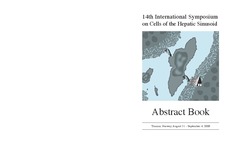Coffee consumption and the risk of cancer in the Norwegian Women and Cancer (NOWAC) study
Permanent lenke
https://hdl.handle.net/10037/10565Dato
2016-03-24Type
Journal articleTidsskriftartikkel
Peer reviewed
Forfatter
Lukic, Marko; Licaj, Idlir; Lund, Eiliv; Skeie, Guri; Weiderpass, Elisabete; Braaten, TonjeSammendrag
An association between coffee consumption and cancer has long been investigated. Coffee consumption among Norwegian women is high, thus this is a favorable population in which to study the impact of coffee on cancer incidence. Information on coffee consumption was collected from 91,767 women at baseline in the Norwegian Women and Cancer Study. These information were applied until follow-up information on coffee consumption, collected 6–8 years after baseline, became available. Multiple imputation was performed as a method for dealing with missing data. Multivariable Cox regression models were used to calculate hazard ratios (HR) for breast, colorectal, lung, and ovarian cancer, as well as cancer at any site. We observed a 17 % reduced risk of colorectal cancer (HR = 0.83, 95 % CI 0.70–0.98, ptrend across categories of consumption = 0.10) and a 9 % reduced risk of cancer at any site (HR = 0.91, 95 % CI 0.86–0.97, ptrend = 0.03) in women who drank more than 3 and up to 7 cups/day, compared to women who drank ≤1 cup/day. A significantly increased risk of lung cancer was observed with a heavy coffee consumption (>7 vs. ≤1 cup/day HR = 2.01, 95 % CI 1.47–2.75, ptrend < 0.001). This was most likely caused by residual confounding due to smoking, as no statistically significant association was observed in never smokers (>5 vs. ≤1 cup/day HR = 1.42, 95 % CI 0.44–4.57, ptrend = 0.30). No significant association was found between coffee consumption and the risk of breast or ovarian cancer. In this study, coffee consumption was associated with a modest reduced risk of cancer at any site. Residual confounding due to smoking may have contributed to the positive association between high coffee consumption and the risk of lung cancer.
Beskrivelse
Submitted manuscript version. Published version in European Journal of Epidemiology, 31(9), 905-916, available at http://dx.doi.org/10.1007/s10654-016-0142-x.
Er en del av
The published version of this article is part of Lukic, M. (2018). Coffee and cancer. Doctoral thesis. http://hdl.handle.net/10037/14112.Forlag
SpringerSitering
Lukic, M., Licaj, I., Lund, E., Skeie, G., Weiderpass, E. & Braathen, T. (2016). European Journal of Epidemiology, 31(9), 905-916. http://dx.doi.org/10.1007/s10654-016-0142-xMetadata
Vis full innførselSamlinger
Relaterte innførsler
Viser innførsler relatert til tittel, forfatter og emneord.
-
Influence of environmental tonicity changes on lipophilic drug release from liposomes
Nikolaisen, Trygg Einar (Mastergradsoppgave; Master thesis, 2018-05-15)Introduction: Liposomes as drug delivery systems has been widely studied as a way to solubilize poorly soluble drugs, reduce side effects of chemotherapeutics and increase circulation time in vivo. Since the first descriptions of liposomes over 60 years ago, they have shown tendencies to shrink and swell when the external environment of the liposomes is altered. This phenomenon has been studied in ... -
Prognostic Impacts of Angiopoietins in NSCLC Tumor Cells and Stroma : VEGF-A Impact Is Strongly Associated with Ang-2
Andersen, Sigve; Dønnem, Tom; Al-Shibli, Khalid Ibrahim; Al-Saad, Samer; Stenvold, Helge; Busund, Lill-Tove; Bremnes, Roy M. (Journal article; Tidsskriftartikkel; Peer reviewed, 2011)Angiopoietins and their receptor Tie-2 are, in concert with VEGF-A, key mediators in angiogenesis. This study evaluates the prognostic impact of all known human angiopoietins (Ang-1, Ang-2 and Ang-4) and their receptor Tie-2, as well as their relation to the prognostic expression of VEGF-A. 335 unselected stage I-IIIA NSCLC-patients were included and tissue samples of respective tumor cells and ... -
14th International Symposium on Cells of the Hepatic Sinusoid
Smedsrød, Bård (Book; Bok, 2008-08-31)Abstract book of the symposium


 English
English norsk
norsk


